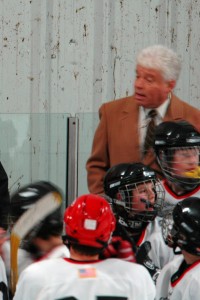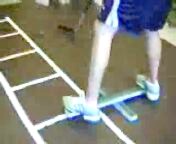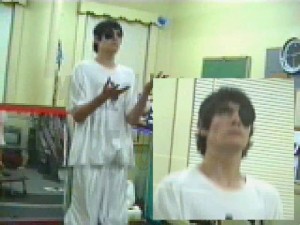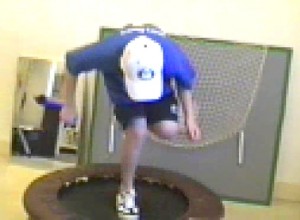I know a few of my recent posts might not make sense as far as timing goes, because they have a lot to do with what we might do in future months, or even next season. This article -- on why hockey coaches matter -- could fall in that category, as could "Caring About Our Hockey Players" or "Conditioning Young Hockey Players". I'm a long range looker, though, as many members should already know...
-- Dennis Chighisola
Why Hockey Coaches Matter
Ya, on that long range looking thing... Over many years in the game, I've found it almost necessary to keep jumping back and forth between my team's current needs, and what I thought they'd need weeks or months down the road. (When it came to my hockey business, maybe you can imagine that I had to start planning spring skills clinics and summer hockey schools while the winter snow was still whirling around Southern New England. No, you couldn't just go buying ice-time, ordering jerseys and advertising a week before a program was to start.) Getting back to working with our teams, though, I always liked to get tips for the future so I could consider them relative to the things that were happening at the moment. For example, it might not be a great idea to toy with a new forechecking scheme or powerplay at mid-season, but laying the groundwork for new ideas surely did fit while we were still in full swing. That's been my aim here at CoachChic.com over recent weeks, planting seeds with my coaching and parent friends, so that they'd be armed in plenty of time for when the timing is really right. And that's the case with our thinking on -- or rethinking about -- why hockey coaches matter. No, we might not be able to immediately change our focus as coaches, but we sure can start thinking about it now. In advance of a video you're about to see, the folks at the Positive Coaching Alliance (PCA) suggest that, "Coaches are some of the most impactful people in our children's lives."
For sure, that's why hockey coaches matter...
In advance of a video you're about to see, the folks at the Positive Coaching Alliance (PCA) suggest that, "Coaches are some of the most impactful people in our children's lives."
For sure, that's why hockey coaches matter...
 I'll bet that there were groups of kids I coached who would say some of the nice things those kids said about their coaches. On the other hand, I'm just as certain there were pockets of players I coached who would think some not-so-kind thoughts of this old coach.
I'll bet that there were groups of kids I coached who would say some of the nice things those kids said about their coaches. On the other hand, I'm just as certain there were pockets of players I coached who would think some not-so-kind thoughts of this old coach.
I think we have to understand that no player starts out as a butterfly. No, he or she has to grow through the development stage/s first, or maybe begin as an ugly duckling. I've seen it thousands of times, too, that the kid who is all arms and legs -- and trips all over himself -- gradually gets those limbs under control, and begins looking pretty dawgone good.
Understand what this really means, though -- and also understand that this is where that "why hockey coaches matter" part comes in... In other words, while players will certainly grow on their own, they're going to grow a whole lot better and faster with the right guidance.
 Here's a personal experience... I once had a young goaltender report to me who was pretty tall and pretty big for his age (at maybe about 13-years old), and he was as bad a physical specimen as I've coached. His legs had no shape to them -- like with no calf muscles, etc, and the rest of his body didn't look much better.
Here's a personal experience... I once had a young goaltender report to me who was pretty tall and pretty big for his age (at maybe about 13-years old), and he was as bad a physical specimen as I've coached. His legs had no shape to them -- like with no calf muscles, etc, and the rest of his body didn't look much better.
I didn't do anything special with him, although he did get frequent special attention from our goalie coach, Todd Jacobson. What he also got, however, was tons of development time as part of my Junior High School and then HS Prep Team programs. That meant all around skills training every Monday night -- doing skating, puckhandling and shooting right along with my forwards and defensemen; he had special physical training in The MOTION Lab once per week; and, he did 2-hours of Soviet-style off-ice training every Saturday morning. Only two other times during the week did we do traditional stuff, like a Wednesday night team practice, and a Saturday or Sunday game. Oh, and during the off-seasons, we were doing mostly skills work, spending more time in the Lab, and working out at an off-ice roller facility.
 Just thinking for a sec, I can picture that kid and our other goalers in the Lab, bouncing on the mini-trampoline -- which is awesome for developing the legs, and at the same time juggling three balls or pucks. Oftentimes they'd even do that with a blindfold on one eye or the other.
Just thinking for a sec, I can picture that kid and our other goalers in the Lab, bouncing on the mini-trampoline -- which is awesome for developing the legs, and at the same time juggling three balls or pucks. Oftentimes they'd even do that with a blindfold on one eye or the other.
Long time members also know how much I've done with jump ropes. So, I'd have to guess that that boy skipped a rope literally thousands of times over his time with us.
Anyway, that kid's goaltending game came along quite well with all that kind of training, as did his physical development. Actually, one day when he was a young teen, I took a good look at him as the teams were doing their spring sprint training in shorts and t-shirts. And I noticed how much he'd developed -- I mean, really developed. Over time, his legs had become shapely, like those of a real athlete, and so did the rest of his body.
Ya, over a few years of pretty smart work, he had gone from being a young caterpillar, to ultimately blossom into a nifty teenage butterfly.
Without question, I believe that kid developed the way he did because this old guy understood why hockey coaches matter. And I understood -- as I hope members do -- that we coaches (and parents) can either help the process, hinder it, or pray that the young caterpillars luck into the butterflies they want to be.
 In closing, expect that I'll gradually add more ideas about the current late-season and the coming off-season. As I do that, I'm sure I'll mention spending time in a "bunker", and I'll also point out the importance of "note taking" during this time of year. As always, I'll be posting links to important posts in "My Best Posts".
In closing, expect that I'll gradually add more ideas about the current late-season and the coming off-season. As I do that, I'm sure I'll mention spending time in a "bunker", and I'll also point out the importance of "note taking" during this time of year. As always, I'll be posting links to important posts in "My Best Posts".

No comments:
Post a Comment